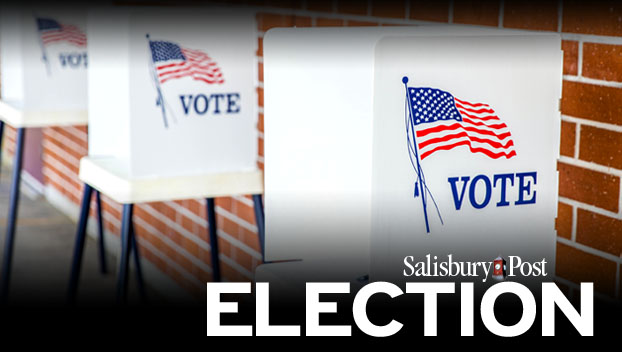Judge OK’s North Carolina plan to ease absentee voting rules
Published 12:43 am Saturday, October 3, 2020
By Bryan Anderson
Associated Press/Report for America
RALEIGH — A North Carolina judge on Friday approved a newly reached settlement that will extend the time for counties to collect absentee ballots and make it easier for people to correct missing witness information on their ballot.
The state board of elections struck a deal last week with the North Carolina Alliance for Retired Americans allowing mail-in ballots to be accepted through Nov. 12 as long as they are postmarked by the Nov. 3 Election Day — a six-day extension of the previous Nov. 6 deadline.
The decision by Wake County Superior Court Judge Bryan Collins to approve the agreement also means county election officials can mail voters an affidavit that can be returned to remedy any outstanding issues with their ballot. Voters previously needed to send an entirely new ballot to correct issues with incomplete witness information. Under state law, North Carolina voters this election cycle must have one witness sign off on their ballot for it to be counted. In other election years, two witnesses are needed.
The state elections board announced Thursday it would halt plans to send out affidavits as the settlement makes its way though the courts. Two federal cases are pending.
When it announced the settlement on Sept. 22, the state board said that the rule changes should be implemented by county boards immediately based on emergency powers it argued its executive director had under state law. Collins sided with the board on Friday, saying it had the authority to implement the changes in the middle of the coronavirus pandemic.
Republicans argued in court on Friday that the settlement effectively eliminates the witness requirement and undermines authority that should be held by state lawmakers.
“It is in the very strong public interest in having some certainty in our elections procedures and rules, and the Board of Elections has a strong incentive to settle this case … and to provide some public confidence in the safety and security of this election in light of all of the challenges of COVID,” Collins said from the bench.
The alliance had argued older people face additional hurdles getting a witness to sign off on their ballot, thus impeding their right to vote during the COVID-19 pandemic. Other groups, such as the American Civil Liberties Union, have sought to eliminate the witness requirement altogether.
According to state data, ballots cast by Black voters have had their absentee ballots set aside by county boards because of incomplete witness information at a higher rate than other voters.
In a unanimous bipartisan vote last week, the state board of elections decided to settle its complaint with the alliance, which it sought court approval from on Friday. The two Republicans on the five-member board who voted to support the settlement resigned shortly after receiving pushback from GOP leadership in the state. The state’s Republican Party has accused Democrats of misleading the two members into supporting the easing of certain voting procedures.
Collins dismissed GOP allegations that Democratic board members colluded with Attorney General Josh Stein when directing counties to send out affidavits.
“It is not illegal,” Collins said. “It is not a product of collusion.”
GOP attorneys at the hearing were denied a request for more time for discovery to search for evidence to substantiate their claims.
Republican state Senate leader Phil Berger announced shortly after the hearing that he would challenge Collins’ decision.
“The secretive effort by Attorney General Josh Stein and the N.C. State Board of Elections to rewrite that law while voting is underway is wrong, inappropriate, and creating chaos,” Berger said in a statement. “Judge Collins, who issued a ruling last year trying to deem the entire legislature a ‘usurper body,’ unsurprisingly sided with unelected Democrats in their effort to rewrite election law while voting is already underway.”
The updated voting rules are also at issue in multiple federal lawsuits. U.S. District Judge James Dever, who is considering challenges by the Trump campaign and Republican legislative leaders, heard their arguments Friday afternoon for a temporary restraining order to block the changes. Dever said he would take the arguments under consideration and issue a written ruling at a later time.
A federal judge in a separate case brought by voting rights advocates also scheduled a hearing for next week. Federal Judge William Osteen, who is overseeing a case on Wednesday, expressed concern that last week’s memo from the state elections board to issue affidavits instead of a new ballot would effectively overhaul the witness requirement.
Associated Press writer Jonathan Drew in Raleigh contributed to this report.



